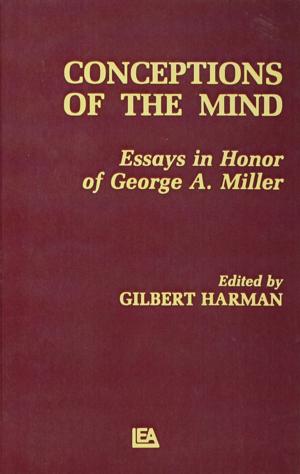Language and Human Nature
Nonfiction, Reference & Language, Language Arts, Linguistics, Social & Cultural Studies, Social Science, Sociology| Author: | Mark Halpern | ISBN: | 9781351509824 |
| Publisher: | Taylor and Francis | Publication: | July 12, 2017 |
| Imprint: | Routledge | Language: | English |
| Author: | Mark Halpern |
| ISBN: | 9781351509824 |
| Publisher: | Taylor and Francis |
| Publication: | July 12, 2017 |
| Imprint: | Routledge |
| Language: | English |
"Language and Human Nature" exposes a century's worth of flawed thinking about language, to exhibit some of the dangers it presents, and to suggest a path to recovery. It begins by examining the causes of changes in the English vocabulary. These sometimes take the form of new words, but more often that of new senses for old words. In the course of this examination, Halpern discusses a wide variety of verbal solecisms, vulgarisms, and infelicities generally. His objective is not to deplore such things, but to expose the reasons for their existence, the human traits that generate them.A large part of this book is devoted to contesting the claims of academic linguists to be the only experts in the study of language change. Language is too central to civilized life to be so deeply misunderstood without causing a multitude of troubles throughout our culture. We are currently experiencing such troubles, a number of which are examined here. The exposure of linguists' misunderstandings is not an end in itself, but a necessary first step in recovery from the confusion we are now enmeshed in.The picture of the relationship between words and thoughts that is part of the attempt to deal with language "scientifically" is partly responsible for dangerous cultural developments. The attempt by linguists to treat their subject scientifically makes them view meaning as an irritating complication to be ignored if possible. It turns them into formalists who try to understand language by studying its physical representations, with a resort to semantics only when unavoidable. With words practically stripped of their role as bearers of meaning, it becomes easy to see them as unimportant. Halpern's book is a serious critique of such oversimplified theorizing.
"Language and Human Nature" exposes a century's worth of flawed thinking about language, to exhibit some of the dangers it presents, and to suggest a path to recovery. It begins by examining the causes of changes in the English vocabulary. These sometimes take the form of new words, but more often that of new senses for old words. In the course of this examination, Halpern discusses a wide variety of verbal solecisms, vulgarisms, and infelicities generally. His objective is not to deplore such things, but to expose the reasons for their existence, the human traits that generate them.A large part of this book is devoted to contesting the claims of academic linguists to be the only experts in the study of language change. Language is too central to civilized life to be so deeply misunderstood without causing a multitude of troubles throughout our culture. We are currently experiencing such troubles, a number of which are examined here. The exposure of linguists' misunderstandings is not an end in itself, but a necessary first step in recovery from the confusion we are now enmeshed in.The picture of the relationship between words and thoughts that is part of the attempt to deal with language "scientifically" is partly responsible for dangerous cultural developments. The attempt by linguists to treat their subject scientifically makes them view meaning as an irritating complication to be ignored if possible. It turns them into formalists who try to understand language by studying its physical representations, with a resort to semantics only when unavoidable. With words practically stripped of their role as bearers of meaning, it becomes easy to see them as unimportant. Halpern's book is a serious critique of such oversimplified theorizing.















